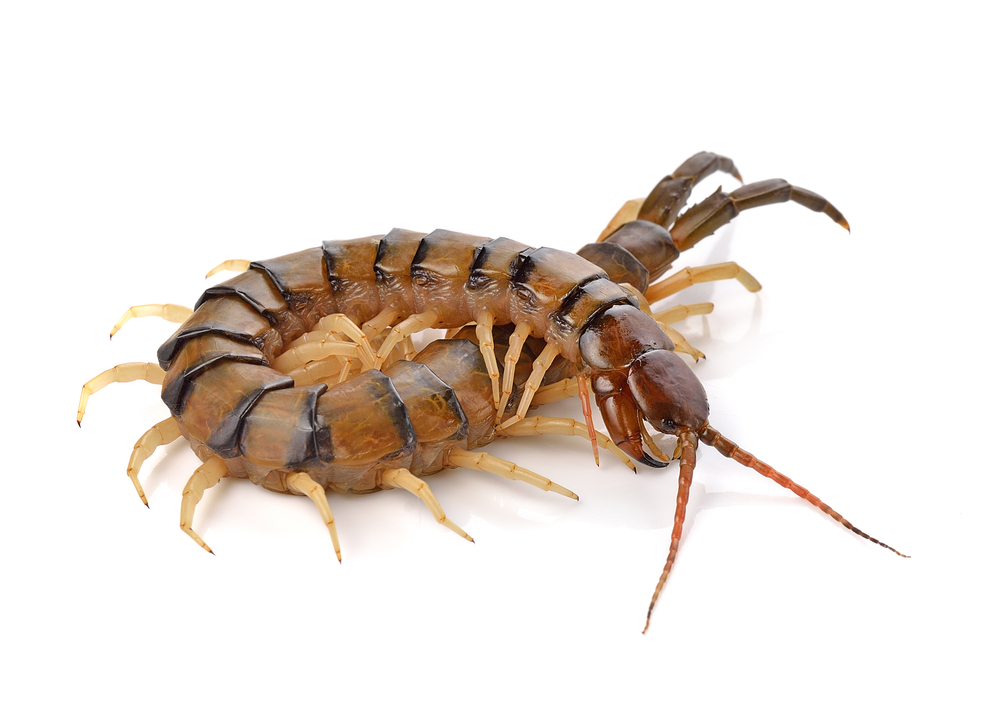Are Centipedes Dangerous?

Are centipedes dangerous? Centipedes are generally considered nuisance pests because they do not pose significant health or property threats. However, all house centipedes have poison jaws with which they inject venom into their prey.
Centipedes are easy to spot by their elongated, worm-like body with their many pairs of legs. They can actually have anywhere from 15-177 pairs of legs with one pair per segment, depending on the species. Interestingly, centipedes always have an odd number of pairs of legs.
HABITS
Centipedes typically overwinter outdoors in protected situations and lay their eggs during the summer, usually in or on the soil. Some have been known to produce 35 eggs over a period of days.
If handled roughly, some larger species can inflict a painful bite that can break human skin and cause pain and swelling, similar to a bee sting. The large Scolopendra can inflict a very painful bite and should be handled with great care.
Centipedes are found in areas of high moisture, such as loose bark, in rotting logs, under stones, in trash or piles of leaves and grass. When they invade homes, they are most commonly found in damp basements, crawlspaces, bathrooms or potted plants.
All centipedes have very poor eyesight and track their prey through the use of touch and smell. They are primarily carnivorous and obtain most of their moisture needs from their prey. Most are nocturnal, and prey primarily on flies, spiders and sometimes plant tissue, causing injury to the plant.
THREATS
Are centipedes dangerous? Centipedes are generally considered nuisance pests, as they do not pose significant health or property threats. However, all house centipedes have poison jaws with which they inject venom into their prey.
MANAGEMENT
Here are some effective ways to help prevent an infestation:
- Reduce areas of moisture in and around your home.
- Remove piles of leaves and grass clippings, logs, stones and rocks on your property.
- Store firewood off the ground.
- Provide adequate ventilation in basements, attics and crawl spaces.
- Seal holes, cracks and gaps that enable outdoor centipedes to get inside a home.
If a centipede is found indoors, you can get rid of it with a vacuum. If you suspect an infestation, please contact us HERE at ClearDefense Pest Control. We’ll be happy to help!
For more info about centipedes, click HERE.
Tags: bugs, centipedes, Charlotte, Chattanooga, Cincinnati, Cincinnatti, clear defense, cleardefense, Columbia, Durham, exterminate, exterminator, Greensboro, Greer, infestation, insects, Kansas City, Knoxville, Nashville, pest control, pests, Raleigh, Raleigh Durham, Richmond, Winston Salem